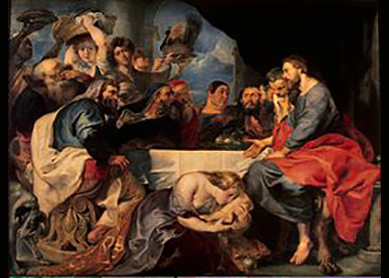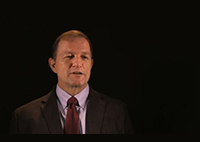Josephus lays out different views of the universe for the Pharisees, Sadducees and the Essenes. He says the Sadducees believe in free will; they are responsible for their own plight in life, for their own status. The Pharisees are kind of half-and-half, they believe in free will, they believe in fate; they’re kind of in the middle. And the Essenes were predeterminists, they were fatalists; it’s all in the stars, it’s all predetermined.
I find it quite interesting that this corresponds to their socioeconomic class; so maybe we would expect people who are incredibly wealthy—and the Sadducees were obviously the priestly elite in the city, in Jerusalem—we might expect people who are incredibly successful to want to take credit for that success. So they would say: I worked hard for this, it’s all about free will, I did this.
Likewise, we might expect a very poor socioeconomic group to have an affinity for predeterminism; that is it’s not my fault, I know I’m poor, life is terrible and you know what, that’s just the way it is, it’s fate, you know it’s not my fault. So, I find it quite interesting that Josephus lays these out and they just happen to correspond to socioeconomic classes. The poor Essenes are fatalists and the Sadducees want to take credit for their success.



